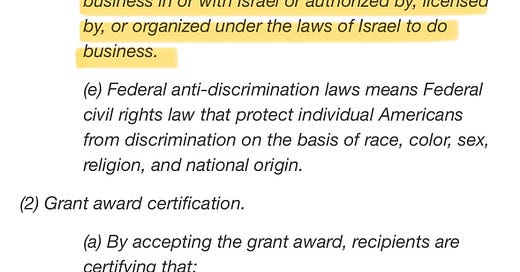NIH Adds Clause Prohibiting Boycott of Israel in Grant Agreements
For more than 100 years, the National Institutes of Health (NIH) and its funded scientists have driven discoveries that have revolutionized medicine and improved lives around the world. Many of these breakthroughs were led by researchers who went on to win Nobel Prizes—often while working at NIH or supported by its grants.
In a significant and controversial policy shift, the U.S. National Institutes of Health has introduced a new clause in its funding agreements explicitly prohibiting grantees from participating in boycotts of Israel. The change is outlined in Notice NOT-OD-25-090 and applies to domestic recipients of new, renewal, supplement, or continuation awards that are issued on or after the date of this notice (April 21, 2025).
This action aligns the NIH with broader U.S. government efforts to counter the Boycott, Divestment, and Sanctions (BDS) movement, which advocates for economic pressure on Israel in protest of its policies toward Palestinians.
Implications for Grantees
Grantee institutions must now certify compliance with the anti-boycott requirement as part of their funding terms. Failure to comply could result in termination of awards, ineligibility for future funding, or other legal consequences. This move may set a precedent for other federal funding agencies, potentially reshaping the interface between research, politics, and global policy positions.




